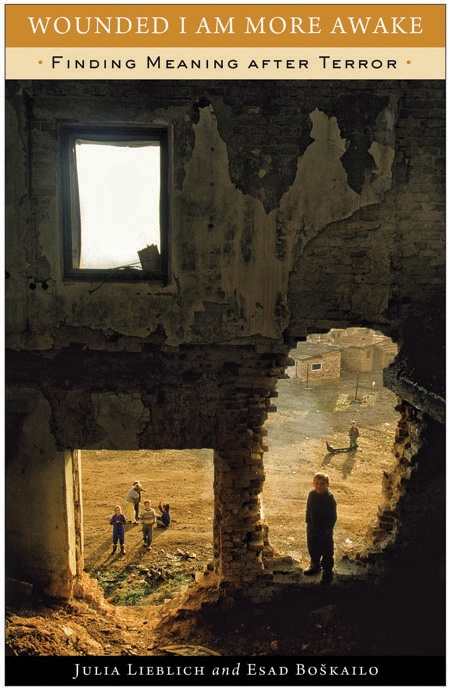Wounded I am More Awake
Finding Meaning after Terror
Bosniak (Bosnian Muslim) Esad Boskailo survived the inconceivable—six concentration camps. He then managed to reconstruct his life in a new land (the US), learn a new language (English), further his studies (become a psychiatrist), and, remarkably, now treats others who have suffered similar horrors. In Wounded I Am More Awake, Boskailo and human rights journalist Julia Lieblich not only recount events of his life before, during, and after Boskailo’s internment, but also provide glimpses into the treatment of his patients and shine a light on his hope for justice for his people.
Boskailo’s story takes readers back to the 1990s, when the former Yugoslavia was seemingly imploding from within. The ostensibly benign result was the restructuring of the region into various countries—Bosnia and Herzegovina, Croatia, Serbia, Slovenia, Macedonia, Montenegro, and, later, Kosovo—but the process by which these divisions were conceived was one of colossal destruction. As wars erupted, friends, neighbors, and colleagues divided based on religious and ethnic differences. Horrific war crimes, mass murders, internment, and expulsions ensued. Although in Boskailo’s case his captors were Croatians, Catholics and former allies of Bosniaks, many of the atrocities reportedly committed have been attributed to the Serbian, Orthodox Christian, forces (though, as Leiblich points out—and vehemently challenges—there are alternative perspectives that frame the conflicts differently and even dispute claims of genocide).
While these chilling accounts are personal, with extraordinarily comprehensive descriptions of events and places, they are at the same time universal stories that echo other disturbing narratives of torture and internment worldwide. This book exposes the totality of the human psyche and is a sublime example of, in Thoreau’s words, a book “revealing us to ourselves.” The “us” here is both collective and singular, the us of human resilience and compassion, as well as that of extreme brutality, an us where survivors retain their humanity in the most sadistic of circumstances, as their victimizers seemingly become beastly caricatures. And it is the “us” that forces readers to confront and question themselves about the unthinkable: Under certain circumstances, could I do that to my fellow humans? If asked in the pre-1990s Balkans, this hypothetical question might have elicited very interesting, even contradictory, responses to the actual events that followed.
Wounded I Am More Awake is for readers willing to contemplate what is unearthed about the human race, its conditions and capacities, for better or worse.
Reviewed by
Elissa Mugianis
Disclosure: This article is not an endorsement, but a review. The publisher of this book provided free copies of the book to have their book reviewed by a professional reviewer. No fee was paid by the publisher for this review. Foreword Reviews only recommends books that we love. Foreword Magazine, Inc. is disclosing this in accordance with the Federal Trade Commission’s 16 CFR, Part 255.

